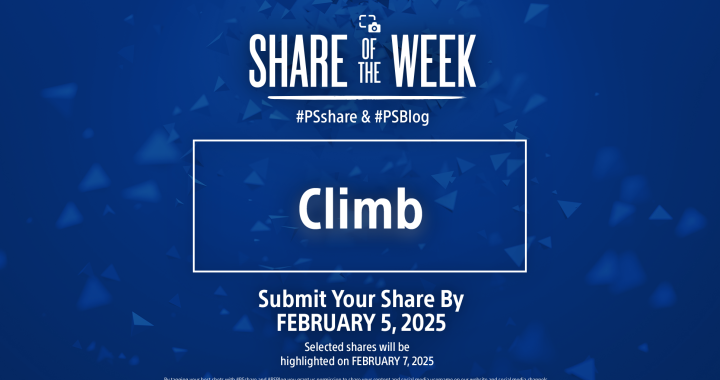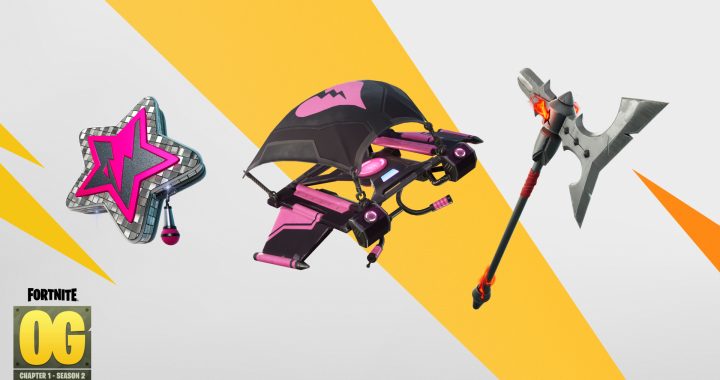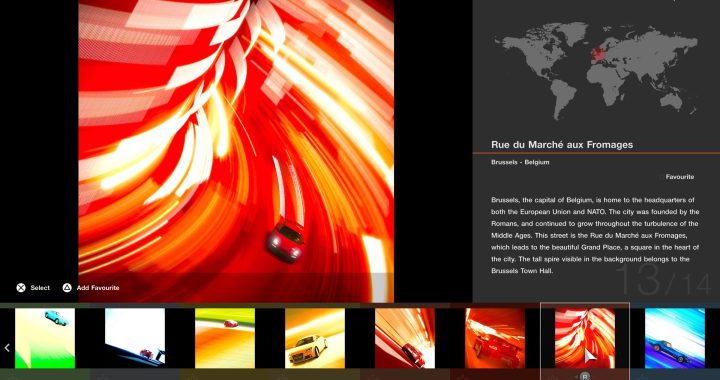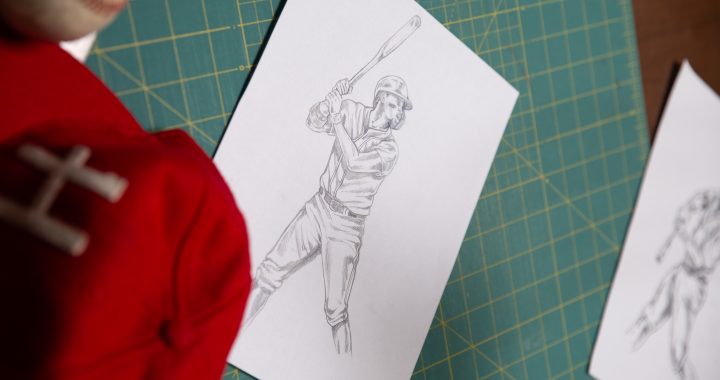Samsung Galaxy S8 and S8+ Review – Leader of the pack | News and Reviews
Now that the Samsung Galaxy S8 and S8+ are now available in the Philippines, this smartphone is turning eyes everywhere cause of its unique Infinity Display.
The Galaxy S8 series is the comeback of Samsung from the 2016 Galaxy Note 7 battery nightmare. As far as the new smartphone is doing, it received outstanding impressions from the international and local media. Now, it’s time for our full review.
Samsung Galaxy S8 (SM-G955F & SMG950F) specs:
- S8+ – 6.2-inch Wide Super AMOLED Quad-HD+ Infinity display @2960×1440 pixels, 531ppi
- S8 – 5.8-inch Wide Super AMOLED Quad-HD+ Infinity display @2960×1440 pixels, 580ppi
- 3D-Curved Corning Gorilla Glass 5
- Samsung Exynos 8895 64-bit 10nm octa-core CPU
- Quad-Core ARM Cortex A53 1.7GHz and Quad-Core Exynos M1 2.3GHz
- Mali G71MP20 GPU
- 4GB LPDDR4 RAM
- 64GB UFS 2.1 internal storage
- Expandable up to 256GB via microSD SIM 2 slot
- 12MP Dual Pixel rear camera dual-tone, dual-LED flash, f/1.7 aperture
- 8-megapixel front-facing auto-focus camera with f/1.7 aperture
- Dual SIM (hybrid), dual LTE, 700MHz Band 28 + Carrier Aggregation
- WiFi 802.11ac, Bluetooth 5.0 Dual Audio
- NFC, GPS with aGPS support, BeiDou, Galileo, Glonass,
- 2A Quick Wireless Charging
- Qualcomm Quick Charge 3.0
- Fast Fingerprint Scanner, Heart-Rate Sensor
- Iris Scanner, Facial Recognition
- IP68 Rating – Dust and Waterproof up to 1m in 30 mins
- Android 7.0 Nougat with TouchWiz
- Samsung Bixby, Bixby Vision
- 3,000mAh | 3,500mAh Li-Po non-removable battery
- Colors: Midnight Black, Maple Gold, Orchid Grey, Coral Blue, Arctic Silver
Design and Display
At one look of the Galaxy S8, you will look twice to see if you are believing what you see. A screen that almost eats up the front part of the phone is such a different experience, especially that it also curves imitating the impression of an “infinity pool”.
The Galaxy S8’s curved screen is purely incremental or shall we say a refinement of the previous Galaxy S7. What’s different this time is that the metal champer on the side is no longer protruding which allows the “Infinity Display” do its magic. At the same time, it gives the Galaxy S8 the hold and feel of a more solid 1 piece assembly.
Overall, when you hold the S8 as compared to any 2017 flagship phones, it will feel and give you a strong impression that it’s very well thought of. The curved screen edges give it a much smaller footprint along with the maximized vertical screen landscape.
The 18.5:9 screen ratio made it possible to give a 5.1″ screen into 5.7″ and 5.5″ into 6.2″ respectively for the S8 and S8+. Amazingly, Samsung was able to pull it off with smaller components on top and re-allocating some at the back.
One thing we still love until now is the IP68 dust and water resistance rating, it’s one of our favorite feature from the S7 and will be even in the future.
Samsung opted to create an invisible home button by making the placement of the home button reactive into force with a haptic feedback. The haptic feedback isn’t the same as the iPhone 7’s, but it isn’t the same vibration style as we all are used to.
The right side is where the power/lock button is and at the left side are the volume toggle and the new Bixby button. To be honest, the Bixby button is the 1st of its kind in a Galaxy S series and indicating Samsung’s intention to push into their own ecosystem. To be honest, we ALWAYS mistaken the button by accident due to its placement and once pressed, it will launch the home page for Bixby from any app which will cause annoyance as you don’t have any intention of using the app in the 1st place.
Samsung’s legendary Super AMOLED screen has elevated their positioning from the start and it still holds place as one of the most dazzling and vivid screens on any smartphone we have experience. Even at full brightness, you can engage with it under the sun without any problem.
At the bottom are the USB-TypeC connector, 3.5mm audio jack and mono-speaker. It’s audibly loud but we wished that Samsung implemented a dual speaker system similar to the iPhone 7 Plus.
Performance
Samsung’s latest Exynos 8895 processor is an optimal processor leap as compared to the Galaxy S7 and Note 7. It speeds away to most flagship smartphones available in the Philippines today. Along with the standard 4GB RAM and UFS 2.1 Storage (Exynos Processors are not affected by the memory issue).
The S8 feels snappy and fast as it’s expected it would be, Samsung’s new and much lighter TouchWiz UI is a great leap from the overly hauled previous versions.
Perhaps one flaw we see with the Galaxy S8 is the forced integration of the Bixby software, it becomes to the point that it may be annoying for you. Even loading the Bixby homepage takes some time to load and causes lag.
The S8 is the 1st smartphone with Bluetooth 5.0 that is capable of father range and even multiple session connections. Dual audio is the most benefitial upgrade as you can have to bluetooth speakers playing one audio at the same time. In our experience there is a slight delay from each other but hopefully Samsung can do a software update to tweak the latency for each audio source.
Security
With the increased footprint of the screen, the fingerprint scanner was forced to be placed at the back. But as compared to the placement from brands like LG, ASUS, and more alike, the S8’s scanner is placed beside the camera.
This decision made it possible for a more intuitive unlocking experience, but it’s also prone for the camera glass to be exposed to smudges at the same time. So be sure to be aware of this con and it will greatly affect your photo taking skills.
This photo could have been better if there wasn’t a visible smudge on the camera lens
Good thing that the Galaxy S8 has more than the fingerprint scanner to back itself up to unlock the phone. You can use either the face recognition or the Iris scanner as an additional security measure and without risking a smudge on your phone.
Honestly, in our times of using the phone. The face recognition is so accurate that is even unlocks the phone immediately after pressing the lock button. This is provided that the phone is aligned with your face and have ample lighting.
You can use the fingerprint scanner and either the iris or face recognition. In our case, we prefer the face recognition over the iris scanner as you don’t have to align your eyes to get scanned. But the face recognition doesn’t work at night unlike the iris scanner, so you might have to consider that as well.
Camera
Now there are two good points to consider with the Galaxy S8, one is that it’s the only flagship remaining with a single rear camera setup.
Samsung indicated that they used the same sensor as the Galaxy S7 but with better software implementation with a triple-multi-frame technology. To make it simple, Samsung implements to combine three frames shot and make a clearer version.
Photos taken with the Galaxy S8 is simply spectacular especially at low light. The f/1.7 aperture along with the multi-frame technology gave it a huge advantage as compared to other cameras with single pixel scanning technology. As a result, the Galaxy S8 takes very fast snaps as long as you focus on the right subject.
Colors are good, high dynamic range is accurate and contrast is fair. Color temperature is also accurate, we have a pet peeve about cameras being favorable to more cool temperatures but it seems Samsung has fixed this problem already.
The PRO mode is very useful in special occasions, here is a photo of trying to take the night sky at Zambales. Even with a nearby building with lights, it was able to take specific stars in the photo. We weren’t able to shoot in RAW but it would have produced better photos with some post-processing enhancements.
Two is that the S8’s 18.5:9 screen ratio made it possible to shoot wider photos like never before. Not using a wider camera lens but more landscape range, so the result is a more dramatic photo and taking advantage of the 18.5:9 screen.
Selfies are now more interactive with an 8MP snapper with autofocus. It can even support up to 2k video resolution and even additional augmented reality stickers to make it “snapchat-like”. We recommend using the on-screen flash in dark conditions as it will simply remove blurs and noise on rare occasions.
We are a bit sad that Samsung didn’t opted to introduce a dual-camera setup, but it seems they aren’t confident enough to compete and instead brought refinement in their already great camera.
Samsung’s New UI + Bixby + Dex
Samsung TouchWiz UI
As we said earlier, the Galaxy S8 initiated Samsung’s refinement for an overhaul experience improvement. Aside from Bixby, everything is cleaner and less “Branded” as we’ve seen.
We like the small gestures that the navigation bar can now be customized, thanks to that it’s now integrated within the screen.
Bixby overall is like Google’s assistant but with Samsung’s implementation. It uses AI prediction to give you what you need and even enable a vision mode via the camera to give suggestions.
Bixby Vision detects the McDo logo
Bixby uses Pinterest, Vivino and other content partners for detecting items such as wine. But the capabilities as of today is very limited. Even the logo of Toyota wasn’t recognized which suggested car photos but very far to the real thing.
Based on our experience, Bixby has potential but perhaps not with 3rd world countries like us here in the Philippines. Until now, our content and even geographic archives aren’t that broad for Bixby.
Aside from all the software enhancement, Samsung took advantage of the strong processor to bring Samsung Dex. It’s a dock dedicated to bringing a desktop-like performance to your S8. You can buy it separately for Php7,490 or $150.
Editing photos, presentations and doing work will be easier as you just need it to connect to your screen and have a mouse and keyboard.
While it may sound awesome, it will depend if you will really use it as it’s a bit limited to top applications today like Microsoft, Viber, Whatsapp and more. You can’t open games to play in Dex as of now, but it would be nice if you could do so as well.
Battery and Charging
As for the battery, Samsung was only able to pack the same capacity as compared to the previous generation. This is understandable with the bigger screen, but Samsung promised better efficiency with their new software and processor.
Samsung resulted to 8 hours in the most recent PC Mark battery benchmark, if translated to real-day performance it’s actually accurate.
In our experience, even with the default resolution was set to FHD, the Galaxy S8 will be short in battery life especially for heavy users. We usually need to charge around 5-6pm from an 8 am call time. Fortunately, it’s compatible with Qualcomm Quick-Charge 3.0 or 2.0, charging it to full in around an hour.
Also, the S8 works with third party quick chargers such as our Aukey fast charge wall adapter and car charger, making it very convenient to charge even on-the-go.
The major drawbacks
As far as we can see, the Galaxy S8 has two drawbacks that might inhibit you.
Battery Life
The Galaxy S8 won’t give you stellar battery life performance, well even the LG G6 or iPhone 7 would do either. But, if you are a person who isn’t a fan of charging then we think you should really reconsider the Galaxy S8.
Unless you want to adjust the settings to the maximum battery saving and even decrease the resolution to as much as 720p.
Durability
Now the Galaxy S8’s innovative infinity screen made a lot of good impressions but also the disadvantage of having a weak corner fall. Unfortunately, you are subjective to a higher change of screen breakage if the Galaxy S8 falls on the front or side.
As compared to other phones, the front infinity display is simply more vulnerable to damage. So you must consider this to buy a case or even change if you should happen to have a very active lifestyle.
S8 vs S8+
Now the S8+ is just a lot taller at 6.2″ and having a bigger battery 3,500mAh battery. The hold is almost the same but we honestly think that it will boil down to if you can reach the top with one hand.
With the Galaxy S8 itself, we already find it a bit challenging to reach the top with our thumb, what more adding around .6 of an inch? That’s the problem faced by the Galaxy S8+ and to simply put…we still prefer the more ergonomic feel of the S8.
Special Concierge
As the flagship of Samsung, you also enjoy the following benefits along with your gorgeous phone. We think this is an incredible deal for Samsung users that levels up their perspective for both themselves and the brand.
- Dedicated 24/7 Customer Care Hotline
- Separate Service lane in Service centers
- Loaner unit for repair duration
- Pickup of unit for repair
- Free lounge access to NAIA 1 and 3
- Free iced beverage at Coffee Bean every Friday
- Free iFlix Access for 6 months
Conclusion
The Galaxy S8 retails for Php39,990 while the S8+ goes for Php44,990. These two devices are the result of Samsung’s dedication to erasing the recent past and move forward…and they did that exactly with the Galaxy S8 series.
If you have the luxury to spend 40k for a phone, we highly suggest in getting the Galaxy S8 over the current iPhone. The potential and experience are simply unbeatable right now.
The S8 will surely surprise more in the future, with their eco-system of accessories such as the Dex, Gear 360, Gear VR and more into the pipeline. Samsung proves that you’re not just buying a phone with them, you’re immersing into a new world of experience waiting for you to discover.
We also award the Samsung Galaxy S8 and S8+ with our recommended award for its extraordinary smartphone experience.
Also, check out the following
 On February 14th, Tomb Raider IV-VI Remastered unveiled the new Flyby Camera Maker.
On February 14th, Tomb Raider IV-VI Remastered unveiled the new Flyby Camera Maker.  Discuss of the Week: Waterfall
Discuss of the Week: Waterfall  Fortnite OG Chapter 1 Time 2 reaches the previous in full force, survive.
Fortnite OG Chapter 1 Time 2 reaches the previous in full force, survive.  Gran Turismo 7 Release 1.55 information revealed, sit now
Gran Turismo 7 Release 1.55 information revealed, sit now  No Man’s Fox’s latest release introduces billions of new stars, planets, and more immediately
No Man’s Fox’s latest release introduces billions of new stars, planets, and more immediately  Introducing MLB The Show x Homage clothing relationship
Introducing MLB The Show x Homage clothing relationship